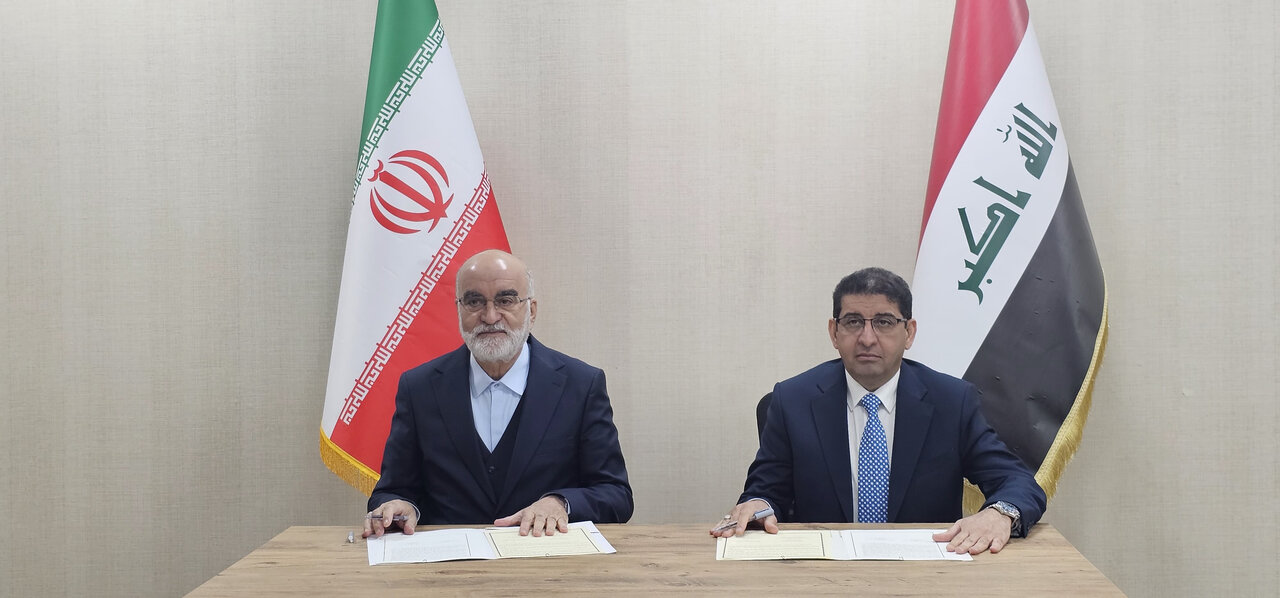Tehran-Baghdad anti-terror coordination intensifies with high-level judicial agreements

TEHRAN – Nasser Saraj, Deputy for International Affairs of Iran’s Judiciary, led a high-profile delegation to Iraq this week. The visit culminated in the signing of four bilateral agreements on Saturday and intensified commitments to combat terrorism and address judicial challenges faced by Iranian pilgrims.
During meetings with senior Iraqi judicial officials, including Faeq Zaidan, President of Iraq’s Supreme Judicial Council, Attorney General Najm Abdullah Ahmad, Justice Minister Khaled Shwani, and Laith Jabr Hamza, head of Iraq’s Judicial Oversight Organization, Saraj underscored the necessity of expanding legal cooperation.
Key discussions centered on accelerating efforts to prosecute terrorist groups such as the Mojahedin-e-Khalq Organization (MKO), ISIS, Komala, and PJAK, as well as advancing cases related to the 2020 U.S. assassination of Martyr General Qassem Soleimani and his companions.
“Iran and Iraq are brothers, bound by deep-rooted cooperation that will continue to thrive,” stated Iraqi Attorney General Najm Abdullah Ahmad during the talks, reaffirming Baghdad’s commitment to judicial collaboration.
During the visit, Saraj announced the signing of four critical agreements covering prisoner transfers, criminal extradition, civil cooperation, and mutual legal assistance.
These accords build on the outcomes of the fourth joint Iran-Iraq Anti-Terrorism Judicial Committee meeting held in Baghdad on Thursday, which saw both sides condemn the Israeli regime’s aggression in southern Lebanon and the assassination of Hamas leader Ismail Haniyeh in Tehran.
Highlighting progress on prisoner exchanges, Saraj noted, “We recently facilitated the transfer of 50 Iranian prisoners from Iraq and anticipate swift resolutions for remaining cases.”
Iraqi Justice Minister Khaled Shwani pledged continued cooperation, emphasizing the “constructive and historic partnership” between the two nations.
Millions of Iranian pilgrims travel to Iraq each year, especially during Arba’een, a religious observance commemorating forty days after the anniversary of Imam Hossein's martyrdom at Karbala. In light of this, Saraj urged Iraqi authorities to streamline entry and exit procedures.
He cited cases where pilgrims faced detention due to missing Iraqi entry stamps despite having valid Iranian exit permits.
“The element of criminal intent is absent in these cases,” the Iranian judge argued, stressing that pilgrims inadvertently violating technicalities should not be penalized.
Iraq’s Supreme Judicial Council President Faeq Zaidan pledged to address these concerns, stating, “We are prepared to resolve judicial hurdles faced by Iranian pilgrims to ensure their dignified visits.”
Both sides agreed to enhance border coordination, ensuring pilgrims receive proper entry stamps and avoid legal complications.
At Thursday’s meeting, the Iran-Iraq Anti-Terrorism Judicial Committee finalized ten key resolutions. These include joint efforts to track down MKO and ISIS affiliates through intelligence sharing and legal action, condemnation of Israeli war crimes in Palestine, Syria, and Lebanon, as well as U.S. aggression in Yemen.
The committee also agreed to activate a 2011 prisoner amnesty agreement to speed up transfers and conduct annual reviews of bilateral commercial dispute courts to enhance efficiency.
Saraj emphasized the committee’s role in “safeguarding regional security,” while Laith Jabr Hamza, representing Iraq, hailed the “fruitful dialogue,” reinforcing mutual objectives.
The talks concluded with both nations vowing to uphold judicial reciprocity, combat financial corruption, and curb drug trafficking.
